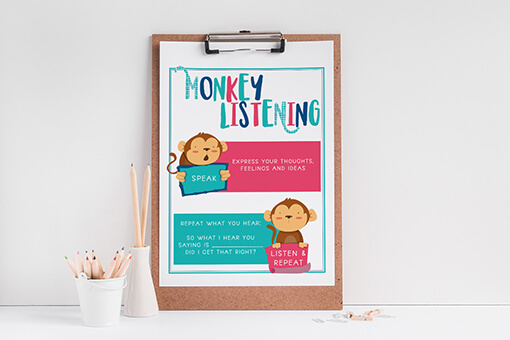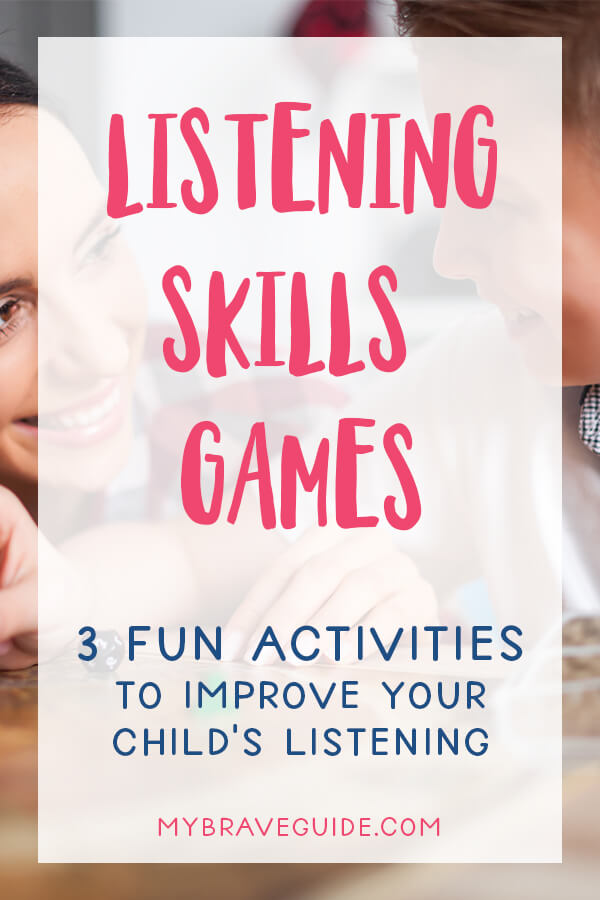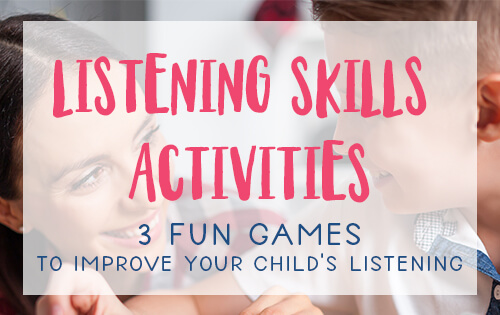When I was getting my master’s degree in Counseling we had to do a lot of listening skills activities. We spent hours learning and practicing to be good at listening. You would think that all of that practice would easily translate into my role as a parent. But, to be honest, it is something that I have struggled with. And because I’ve struggled with it, so have my kids.
I have found that I have to make a very conscious effort to be a good listener with my kids. This way, when I’m teaching them good listening skills, they are receptive to my teaching. Here are some of the ways that we have been working on developing our listening skills lately.
Teaching Children to Listen Better with Listening Skills Activities
Listening is actually a learned skill which is really good news if your kids aren’t very good at listening. If you are hoping that they will get better at obeying the first time you ask, then try teaching them how to listen.
There are many ways to teach better listening. (In fact, I have a whole course on it here: The Be Heard Method). Here are a few of my favorite listening skills activities and games:
Discuss and Practice Good Eye Contact
I think the ability to communicate while having good eye contact is a fairly universal problem these days. (We’re all so busy looking at our phones or other devices!) Approach a conversation about eye contact with humility. Especially if you know that you are also guilty of “multi-task” listening to your children.
One fun way to teach this skill is to bring the concept up through a little game. Ask your child to tell you about something they care about (dinosaur facts, their video game, gymnastics, etc.) The first time they tell you, have your phone out and listen to them while looking at your phone. Then, try again but this time making eye contact. Next, switch roles and have your child try the experiment on you. After you have both taken turns, take a moment to talk about what felt better – having eye contact or not. Ask if they felt like you were listening when you were looking at your phone. Ask if they felt like it was easier to hear and understand what you had to say while they were making eye contact with you.
Make an agreement to both work on eye contact while communicating. Set a phrase that will help get your attention so that you know that your child wants you to listen (or vice versa.)
Discuss and Practice Taking Turns
In group therapy, there used to be a popular concept called “The Talking Stick”. The idea is that when someone has the talking stick it is their turn to talk. Everyone else listens. The stick is shared, and everyone gets a turn to speak. For some children, this can be a really helpful concept.
Find an object that can represent a talking stick. Practice using it to take turns talking and listening. When you find yourself in a heated situation where you want your child to work on their listening skills, pull out that object. See if it calms and neutralizes the situation.

Monkey Listening
Monkey Listening is a fun style of listening that is often referred to as reflective listening in the counseling world. The basic concept is that you listen to what the person tells you. Then repeat it back to them. Then finish by asking, do I have that right? So, for example:
Daughter: “I really want to sleepover at my friend’s house. I feel like you never let me do anything fun!”
Mom: “What I hear you saying is that you really want to sleepover at your friend’s house. And you are feeling like I never let you do anything fun. Do I have that right?”
Teaching children how to do Monkey listening can be really helpful as it works on building empathy, and understanding. It also allows both parties to feel heard and understood.
To teach your child monkey listening, frame it as a game. Tell them that you are going to try being monkeys and repeating back what each person says. Model the format for them and then do some practice. Once they have the concept, start weaving this type of listening into your normal conversations.
Monkey listening can also be a really great tool to use when it comes to those heated moments. Using this process to reflect back to each other helps slow the moment down and calm tempers. I like using this technique when it comes to teaching apologies too (especially for siblings!)
Better Listening Through Listening Skills Activities
Teaching kids all of the valuable life skills they will need can be tough! I try to share valuable, practical, and helpful skills, tools, and lessons on this blog to help you become better at helping your child. I also have a free Parenting Resource Library where you can find all kinds of helpful tools to use with your kids. Sign up for access below.

